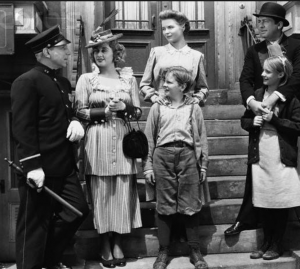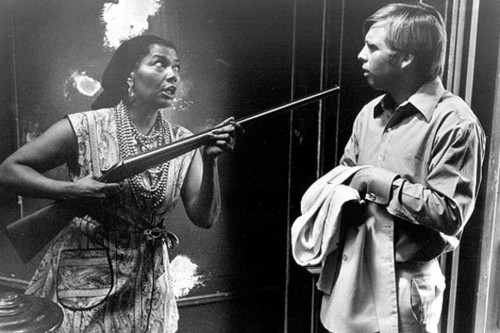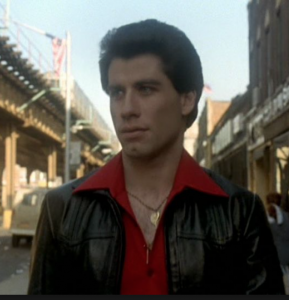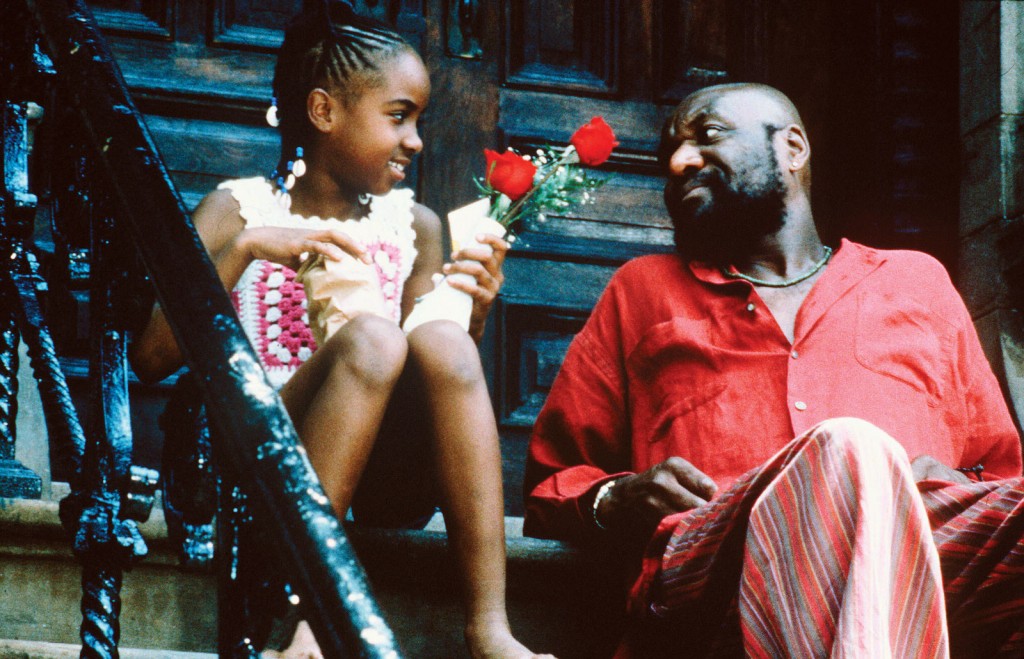 Even before Brooklyn became the nation’s hottest borough, it figured prominently in cinema. Its image has changed drastically over the years, though–from a working class, matter-of-factly multicultural bastion to the hipster playground that’s mocked and celebrated today. Not to malign triple-shot almond milk lattes and bearded men in skinny jeans, but for those longing for old-school BK (and regular coffee!) these movies are a good place to start.
Even before Brooklyn became the nation’s hottest borough, it figured prominently in cinema. Its image has changed drastically over the years, though–from a working class, matter-of-factly multicultural bastion to the hipster playground that’s mocked and celebrated today. Not to malign triple-shot almond milk lattes and bearded men in skinny jeans, but for those longing for old-school BK (and regular coffee!) these movies are a good place to start.
A Tree Grows In Brooklyn (1943)
Elia Kazan’s first film is not his finest–it took a few years before he shed that studio system staginess–but it is an affecting adaptation of Betty Smith’s beloved novel set in 1900s Williamsburg, Brooklyn. A theater director initially, Kazan excelled at working with actors; under his tutelage, Peggy Ann Garner, whose real-life father was fighting in World War II, was heartbreaking as Francie, a scholarly girl with an alcoholic dad, played equally movingly by James Dunn, the Hollywood veteran derailed by his own love affair with the bottle. (He won an Academy Award for this performance.) A beautifully blue valentine to early twentieth-century tenement life.
 The Landlord (1970)
The Landlord (1970)
The late, great Hal Ashby’s social comedy with copper pipes is one of the most underrated films to emerge from the Kent State-inspired cinema of the early 1970s. Beau Bridges stars as an over-entitled rich kid who buys a Bed Stuy row house only to discover he’s accountable to people he’d never encounter at the country club. Adapted from Kristen Hunter’s eponymous novel and featuring Gordon Willis’s voluptuously shadowy cinematography, this message movie about gentrification is tonally bumpy but, with powerhouses like Pearl Bailey and Lee Grant, it’s best to just enjoy the ride.
Saturday Night Fever (1977)
It all begins with a silent panoramic view of New York City’s bridges. And then, as the first bars of the Bee Gees’ “Staying Alive” begin to thump, the camera zooms in on a loose-limbed, square-shouldered 23-year-old John Travolta as Tony Manero strutting down a bustling Bensonhurst street in a black leather jacket, open-collared crimson shirt, flared trousers, and elevator shoes. Could there be a more iconic image of late-seventies Brooklyn? The rest of the film–about Tony’s checkered life as the king of the disco and the prince of the hardware store–is mostly elbows (women sure get the short end of the stick) but it’s unparalleled as a time capsule of late-seventies dances and fashions, as well as a pre-zombie Travolta.
Radio Days (1987)
One of Woody Allen’s most entertaining mid-career films, “Radio Days” soars as an examination of the delicious subjectivity of memory. Seth Green (yep, that Seth Green) stars as a red-haired, Rockaway beach moppet whose passion for the unseen world of radio blurs into his everyday life. Set during World II with wags like Dianne Wiest, Julie Kavner and Wallace Shawn (as the Masked Avenger!) rounding out the cast, this is like a Norman Rockwell portrait painted by a Fellini who keeps Kosher.
Smoke (1995)
About the goings-on at a Park Slope cigar shop, “Smoke” is so good that it makes you wonder why director Wayne Wang has made pabulum like “Maid in Manhattan” ever since. Crafted closely with author and long-time Park Slope denizen Paul Auster, it stars Harvey Keitel as store owner Augie, who presides over a host of such interconnected characters as Forrest Whitaker as a sadsack mechanic, Harold Perrineau as a local teen, and an especially brassy Stockard Channing as Augie’s ex wife. A staple of nineties independent cinema, this is the sort of melancholy, appealingly ramshackle ensemble film that never gets old. Good thing there’s “Blue in the Face,” pieced together from outtakes of the same production. (Check out Lou Reed’s legendary cameo.)
Crooklyn (1994)
 Spike Lee’s films almost always honor his native stomping grounds but “Crooklyn” is his most endearingly nostalgic–perhaps because it closely mirrors his childhood and is co-authored by his sister and frequent costar, Joie Lee. Set in 1970s Fort Greene, it’s about ten-year-old Troy (Zelda Harris), the only sister in a high-strung family comprised of many rough-and-tumble brothers, a stern, ailing mother (Alfre Woodard), and a charismatic if unreliable jazz composer father (Delroy Lindo). Sprawling, brightly hued, hot-headed, and warm-hearted, this film’s strength is also its weaknesses: it loves too much. As deficits go, it could do much, much worse.
Spike Lee’s films almost always honor his native stomping grounds but “Crooklyn” is his most endearingly nostalgic–perhaps because it closely mirrors his childhood and is co-authored by his sister and frequent costar, Joie Lee. Set in 1970s Fort Greene, it’s about ten-year-old Troy (Zelda Harris), the only sister in a high-strung family comprised of many rough-and-tumble brothers, a stern, ailing mother (Alfre Woodard), and a charismatic if unreliable jazz composer father (Delroy Lindo). Sprawling, brightly hued, hot-headed, and warm-hearted, this film’s strength is also its weaknesses: it loves too much. As deficits go, it could do much, much worse.
This was originally published in Word and Film.
